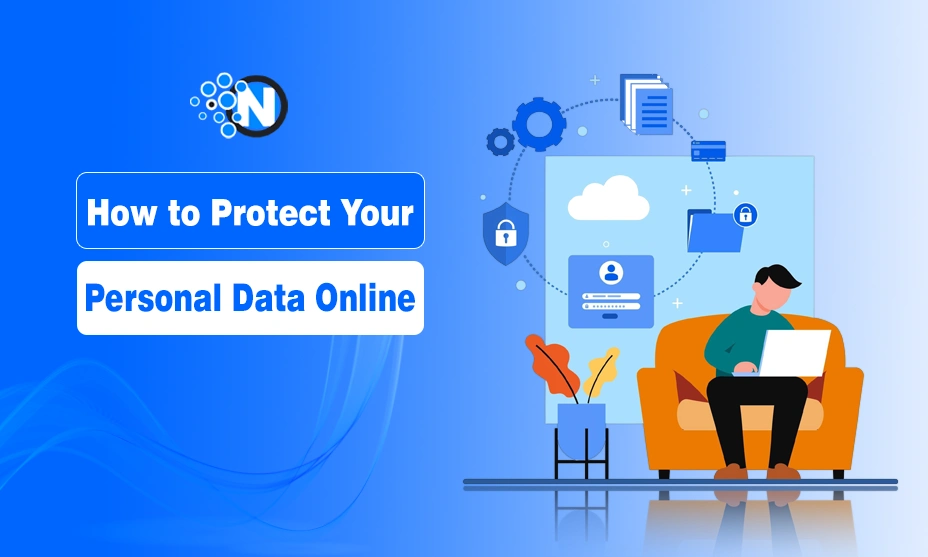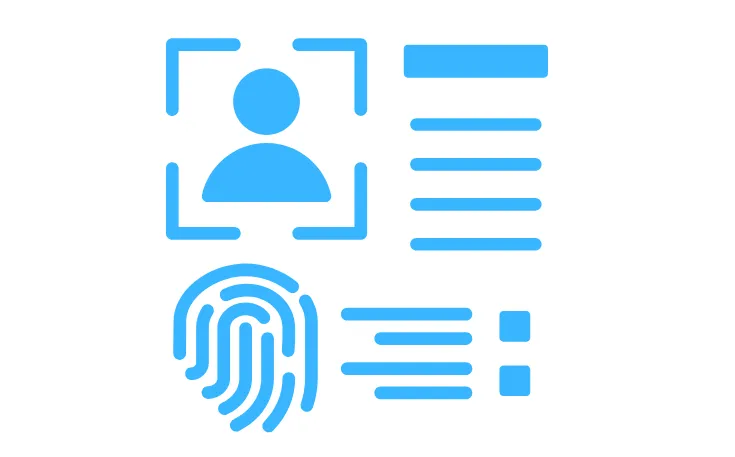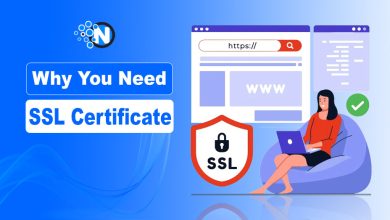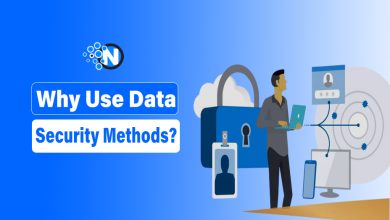How to Protect Your Personal Data Online? Top 10 Ways

Have you ever stopped to think about how much of your personal information is floating around the internet right now? I know I did, and what I found was honestly a little scary.
The more we use the internet for business, leisure and communication, the more snippets of personal data we leave behind; snippets that cybercriminals, advertisers and other illicit users can take advantage of.
Our digital footprint, which includes most things (from social media accounts to online purchasing information) can expose our private information about us and leave us dangerously open to identity theft, financial fraud and invasions of privacy.
And with that footprint comes the risk of someone – whether a hacker, scammer, or even a careless company – getting their hands on our sensitive information.
In this guide, I am going to walk you through 10 solid ways you can protect your personal data online.
What is Personal Data?
Start creating Verdict in seconds, and convert more of your visitors into leads.
Personal data is any kind of information that relates to an identified or identifiable individual. This includes details such as your name, address, phone number, email, identification number, location data, and online identifiers.
Even data that has been encrypted but can still be used to identify someone is considered personal data. Due to the increasing number of cyber threats, protecting personal data is important than ever before.

How to Protect Your Personal Data Online?
Start creating Verdict in seconds, and convert more of your visitors into leads.
I know there have been a lot of cyber security threats on the web over the last few years. But surely, they involve negligence from the users at some points as well. I also have been a victim of such a data breach, but since then, I have implemented key strategies to protect my personal information.
In the under section, I have mentioned the top 10 ways that will help you learn how to protect your personal data online.
1. Use Strong and Unique Passwords for Every Account
We have all been guilty of reusing passwords. I know I used to do it all the time until I realized it is like giving hackers a master key to your digital life.
Each of your accounts – email, banking, social media, and budgeting apps – should have a different, strong password. This makes it significantly harder for cybercriminals to break in.
Why this matters?
- A single breach won’t compromise all your accounts
- Strong passwords are harder to guess or crack
- It prevents automated attacks (called credential stuffing)
Tips to create strong passwords:
- Use at least 12 characters
- Mix uppercase, lowercase, numbers, and symbols
- Avoid obvious words or personal info (like your name or birthdate)
💡Pro Tip:
Use random phrases that are easy for you to remember but hard for others to guess. Something like: PurpleToaster$88RainDance! works far better than John1995.
2. Use a Password Manager to Keep Track
Let’s be honest – it is really not easy to remember dozens of complicated passwords. That’s where password managers come in. I started using one last year, and it has been a lifesaver.
Password managers securely store all your passwords in one place. You only need to remember one master password, and the tool does the rest.
Benefits
- Auto-fills passwords for your websites and apps
- Encourages the use of unique passwords
- Some even alert you if your data has been compromised
Popular password managers to consider:
- Bitwarden (great free option)
- 1Password
- Dashlane
- LastPass
💡Pro Tip:
Choose a password manager that offers encrypted cloud syncing, so you can access your data securely from any device.
3. Enable Two Factor Authentication (2FA)
Even with a strong password, your account can still be at risk. That’s where 2FA comes in – it adds an extra layer of security. With 2FA, even if someone has your password, they can’t get into your account without your second authentication step.
I have enabled 2FA on all my important accounts, and you should too. Whenever someone tries to log in on any unspecified device, even knowing your password, you will get a notification to add a security code, which you can deny to save your accounts.
Common 2FA methods include:
- One-time codes sent via SMS
- Authentication apps like Google Authenticator or Authy
- Biometrics (like Face ID or fingerprint)
Where to enable it?
- Email accounts
- Social media profiles
- Online banking and shopping platforms
💡Pro Tip:
Skip SMS-based 2FA when possible. Authenticator apps are more secure and don’t rely on your phone number.
4. Be Careful with Public Wi-Fi
Free public Wi-Fi might seem like a blessing when you are out and about, but it is actually one of the riskiest ways to go online. These networks are often unsecured, which means hackers can intercept the data you are sending and receiving.
I never log in to sensitive accounts when I am on public Wi-Fi. And when I absolutely need to, I always use a VPN.
Risks of public Wi-Fi
- Man-in-the-middle attacks
- Data interception
- Fake hotspots created by hackers
What can you do?
- Use your mobile data instead when possible
- Avoid accessing banking or email accounts
- Use a VPN to encrypt your traffic
💡Pro Tip:
If you travel frequently, invest in a portable hotspot or use your phone’s hotspot feature for safer browsing.
5. Use a VPN When Browsing
VPN stands for Virtual Private Network, and it is one of the best tools to protect your data and anonymity online. It encrypts your internet traffic and hides your IP address. Thus, it makes it much harder for anyone to track your online activity.
I use a VPN daily, especially when I am on hotel Wi-Fi or using airport networks. This way, I always ensure that no one can have easy access to my personal information online.
Advantages of using a VPN
- Encrypts all your data
- Prevents websites from tracking your IP
- Helps you access region-locked content
Top VPNs you can trust
- NordVPN
- ExpressVPN
- Surfshark
- ProtonVPN (has a free plan)
💡Pro Tip:
Don’t go for completely free VPNs that promise the world. Many sell your data. Stick to reputable, audited services.
6. Keep Your Devices and Software Updated
Those annoying pop-ups telling you to update your device? They actually matter. Updates often include security patches that fix vulnerabilities hackers exploit. It not only helps you keep your personal information secure online but also enhances mobile security.
Previously, I also did not focus on updating my devices to the latest version. However, with time, I have learnt so many things and now, I have set my devices to auto-update, so I never miss critical fixes.
Why updates are essential?
- Patches security loopholes
- Fixes bugs that may expose data
- Improves device performance
Things to keep updated
- Operating systems (Windows, macOS, Android, iOS)
- Web browsers
- Antivirus and security apps
- Any frequently used applications
💡Pro Tip:
Enable auto-updates wherever possible so you never fall behind. Also, uninstall apps you no longer use.
7. Be Mindful of What You Share on Social Media
We all love to share life updates on social media platforms, but oversharing can expose you to identity theft and scams. I used to post everything – from my travel plans to my pet’s name.
But then I learned how easy that info can be used against me. That’s why you should also prevent uploading such confidential information on social platforms like Facebook and Instagram.
Personal info hackers love:
- Birthdays
- Home address
- Pet names (often used in security questions)
- Travel plans (alerts burglars that you’re away)
Steps to Protect Yourself
- Set your profiles to private
- Avoid posting sensitive information
- Review your friend/follower list regularly
💡Pro Tip:
Google yourself every couple of months to see what info is publicly available. It’s eye-opening!
8. Be Smart with Emails and Messages
Phishing is still one of the most common ways people get tricked into giving away personal data. You probably have received emails and notifications on the Google Messages or iMessages app that looked almost identical to legitimate ones.
Maybe they are from banks, delivery companies, or even government offices. But you should always not trust them blindly as they can be a part of phishing. Always double-check before clicking any links or downloading attachments.
How to spot a phishing email?
- Spelling and grammar errors
- Urgent language (“Act now!” or “Your account will be closed!”)
- Suspicious email addresses
- Unexpected attachments or links
How to stay safe?
- Don’t click links from unknown senders
- Verify messages through official apps or websites
- Use spam filters and report phishing attempts
💡Pro Tip:
Hover over links before clicking to see the actual URL. If it looks weird or doesn’t match the sender, stay away.
9. Limit App Permissions
Many apps ask for way more permissions than they need. Ever downloaded a simple flashlight app that wanted access to your contacts? That’s a red flag.
I regularly audit the permissions I have granted and remove anything that doesn’t make sense. So, if you have also downloaded such apps that constantly ask for permissions, uninstall them from your smartphones.
Permissions to watch for:
- Access to the microphone and camera
- Location tracking
- Contacts and messages
How to manage permissions?
- On Android and iOS, go to Settings and then App Permissions
- Deny access unless absolutely necessary
- Delete apps you no longer use
💡Pro Tip:
Use the “Allow only while using the app” option for location and camera whenever possible.
10. Backup Your Data Regularly
You never think about backups until it is too late. Whether it’s a hack, accidental deletion, or device failure, not having a backup can mean losing everything.
I have made it a habit to back up important files weekly, and I am also suggesting this to you. It only takes a few minutes but offers huge peace of mind.
Best backup practices:
- Use both local (external hard drive) and cloud backups
- Automate the backup process
- Keep at least one backup off-site
Reliable Cloud Services
- Google Drive
- Dropbox
- iCloud
- OneDrive
💡Pro Tip:
Use a 3-2-1 backup rule: 3 total copies of your data, 2 on different devices, 1 stored offsite or in the cloud.
Final Thoughts
Start creating Verdict in seconds, and convert more of your visitors into leads.
These are the details on how to protect your personal data online. While it might feel overwhelming at first, but trust me – it gets easier. Once you make these practices a part of your routine, you will feel more in control of your digital life.
It is not about being paranoid. It is about being prepared. I started small – one step at a time – and now, I have built a pretty solid digital fortress around myself. If I can do it, so can you.
So don’t wait for a breach or identity theft scare to take action. Start now. Pick one thing from this list and implement it today. You will thank yourself later.




